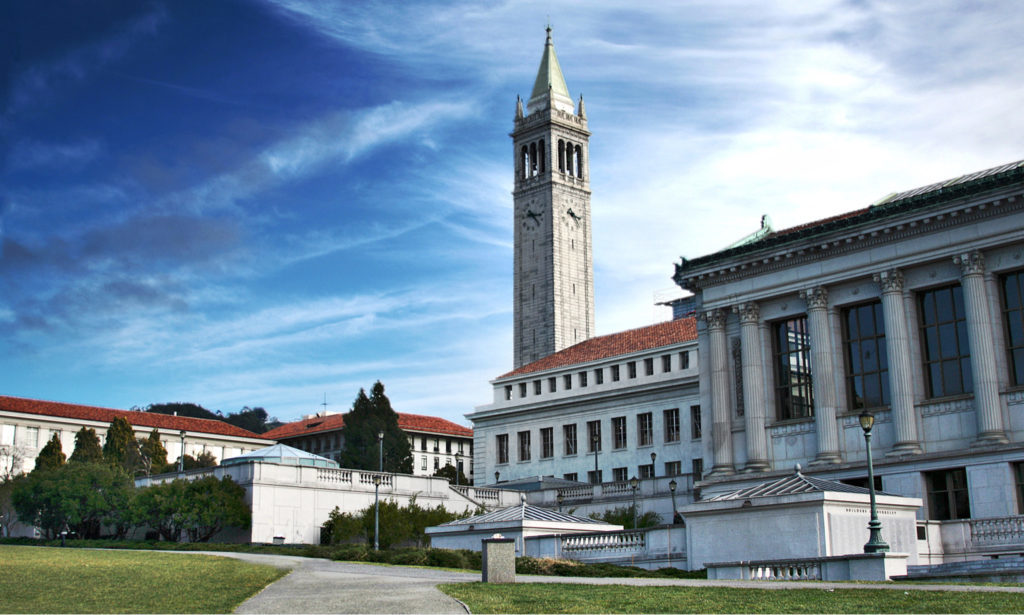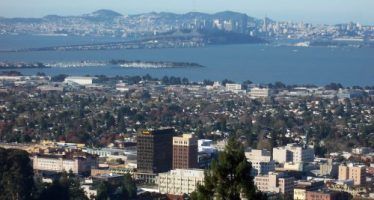Faculty housing? No thanks, says Berkeley faculty Senate

The need for less expensive housing in the Bay Area and Silicon Valley has been so plain for so long that many of those on the outside of California looking in wonder why local governments, developers and voters can’t get on the same page and get things done. A January story in the New York Times about the unexpected backlash to San Jose Unified’s attempts to prevent an exodus of teachers by offering subsidized housing reflected this sense of puzzlement.
But a story unfolding at the University of California’s Berkeley campus shows the complexity and difficulty of adding housing in urban areas of the Golden State. Housing development is seen by some communities and interest groups as a zero-sum game – if one side wins, then the other side or sides must have lost.
To address a lack of affordable housing that UC Berkeley says has made it difficult to attract and retain professors, Chancellor Carol Christ last year launched an aggressive push to replace a four-story campus parking building with 350 vehicle spaces with a $126 million complex that included 150 faculty apartments, 170 parking spots and a relatively small academic building.
But the plan to tear down the Upper Hearst parking building has faced steadily increasing criticism from faculty members. Their concern is that building the project would add to the heavy debt load borne by the university because of the $474 million cost of recent stadium renovations and the construction of a new student athletic center.
Yet coverage by the San Francisco Chronicle earlier this month of the Berkeley faculty Senate’s 174-69 vote asking Christ to suspend the project noted that the most pitched criticisms of the proposal came from engineering faculty members who stood to lose their access to convenient parking. Their criticism of the project continued even after Christ presented documents that she said showed the developer and property manager bore the financial risks if the project had cost overruns or other problems – not the university.
City says campus minimized enrollment growth
Meanwhile, a new front in this fight emerged in late April when the Berkeley City Council voted to sue UC Berkeley and the UC system over the apartment complex – even though city leaders praised Christ for seeking to add on-campus housing.
Council members cited planning documents previously filed with the city under which the university forecast it would have a student enrollment of 33,450 by 2020. Instead, as of January, enrollment already stood at about 41,000 – more than 25 percent higher than what UC officials had predicted.
Since under state law, the UC campus doesn’t pay local property taxes, city leaders say Berkeley taxpayers are the ones who are saddled with the cost of this fast growth.
This enrollment spurt has led to “increasing burdens on our streets, police and fire services,” Berkeley Mayor Jesse Arreguin said in a news release.
But Christ has been conciliatory to city officials, suggesting the university sees a path to addressing City Hall’s concerns about campus enrollment growth.
Yet the Berkeley chancellor isn’t deferring to the faculty Senate. She’s moved ahead with plans to tear down the Upper Hearst parking structure. The building could be closed next month, and construction work could begin this September, according to stories in the Daily Californian student newspaper. UC Berkeley officials hope the new complex can be finished by summer 2021.
Chris Reed
Chris Reed is a regular contributor to Cal Watchdog. Reed is an editorial writer for U-T San Diego. Before joining the U-T in July 2005, he was the opinion-page columns editor and wrote the featured weekly Unspin column for The Orange County Register. Reed was on the national board of the Association of Opinion Page Editors from 2003-2005. From 2000 to 2005, Reed made more than 100 appearances as a featured news analyst on Los Angeles-area National Public Radio affiliate KPCC-FM. From 1990 to 1998, Reed was an editor, metro columnist and film critic at the Inland Valley Daily Bulletin in Ontario. Reed has a political science degree from the University of Hawaii (Hilo campus), where he edited the student newspaper, the Vulcan News, his senior year. He is on Twitter: @chrisreed99.
Related Articles
Far-reaching state housing law gets nowhere in Berkeley
As CalWatchdog reported July 2, the city of Cupertino’s decision to stop fighting a massive mall makeover project enabled by
Obamacare: Not enough doctors in CA, FL
Feb. 26, 2013 By John Seiler An axiom of Econ. 101 is: Lower cost increases demand. That’s what’s happening to
Remembering when — and why — California inspired the world
Dec. 25, 2012 By Chris Reed Merry Christmas, everyone! The autumn issue of City Journal has a wonderful piece by



